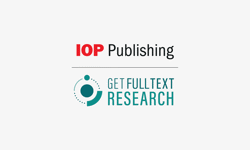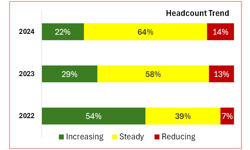ORCID is a not-for-profit organisation that provides a unique digital name, or iD, which identifies researchers and scholars, and distinguishes them from others with similar names. By connecting this iD to all their research activities, publications, and affiliations, researchers will benefit from improved recognition, reduce reporting burdens, and ensure they get full credit for their work, says IOP Publishing.
Jamie Hutchins, Publishing Director for IOP Publishing, said: “By signing the ORCID Open Letter, IOP Publishing and the APS together aim to improve the experience of the scholarly publishing process for researchers in the fields we represent.
“It is extremely important that researchers are correctly recognised for their work, whether as an author, reviewer or editor, and that the community is able to cite work without confusion. ORCID identifiers make this easier, by removing the confusion that can be caused by similarities between researchers’ names, name changes, inconsistencies in abbreviations, and cultural differences in how names are presented.”
Matthew Salter Publisher at APS, said: “ORCID iDs will make a huge difference to the research community when it comes to being accurately credited for their work, and in tracking their publications over the course of their careers.
“With several major funders now requiring ORCID iDs as part of their grant application process, we hope that this will reduce the administrative burden on researchers as well as providing scholarly benefits.”
Laurel Haak, Executive Director of ORCID, welcomed APS and IOP engagement with ORCID. “As the main publishers in the physical sciences, use of ORCID iDs by APS and IOP means that authors will be clearly attributed and their body of work more easily discoverable," she said.
IOP Publishing and APS will collect ORCID iDs for all corresponding authors through the ORCID API, and will display the identifiers in articles published in their journals. By signing the letter, the two publishers have also committed to meeting ORCID's best practices for publishers, which were developed in order to ensure a good author experience.










